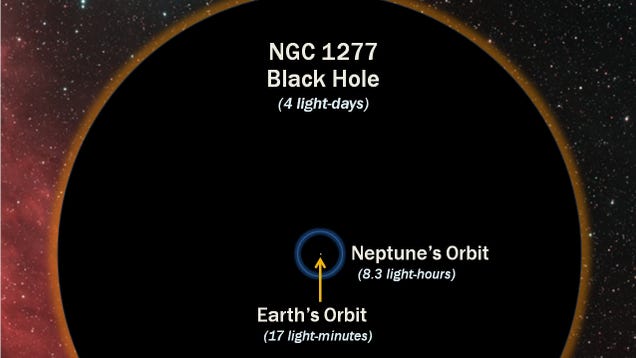17Larsson
Not a malefactor just a lagomorph
Will we be able to learn more about this planet? Will it ever possible to look at it closer?
It's 1,400 light years away (and possibly 1.5bn years older which is pretty amazing to imagine, could be the relics of a great civilisation rotting on it as we speak) so probably not in any great detail, but I think the Webb Space Telescope that's due to launch in a few years will be able to detect atmospheres on exoplanets, so we'd be able to look for water vapour, oxygen, levels of CO2 and such. It's worth remembering that Venus is an Earth-sized planet in the habitable zone (just), but it's about as inhospitable as you could imagine.Will we be able to learn more about this planet? Will it ever possible to look at it closer?
Will we be able to learn more about this planet? Will it ever possible to look at it closer?
It's 1,400 light years away (and possibly 1.5bn years older which is pretty amazing to imagine, could be the relics of a great civilisation rotting on it as we speak) so probably not in any great detail, but I think the Webb Space Telescope that's due to launch in a few years will be able to detect atmospheres on exoplanets, so we'd be able to look for water vapour, oxygen, levels of CO2 and such. It's worth remembering that Venus is an Earth-sized planet in the habitable zone (just), but it's about as inhospitable as you could imagine.
The main value of finds like this is the statistical one rather than the planet itself - we'll be able to estimate the frequency that a sun-like star will have an earth-like planet in its habitable zone, which will give us a good idea of the number of them that like are likely to be in our galaxy/near us.
Can we be sure we have already not been discovered, perhaps before or even during the existence of our race?before another planet discovers Earth
Lol, that is a good point. Just sends your mind on a trip when you think about the endless possibilities in regards to the galaxy. The questions that can be posed when talking about the universe are amazing.Can we be sure we have already not been discovered, perhaps before or even during the existence of our race?
Be a while till our telescopes can detect dead whales.Maybe it's Magrathea.
Lol, that is a good point. Just sends your mind on a trip when you think about the endless possibilities in regards to the galaxy. The questions that can be posed when talking about the universe are amazing.
That was fun lol.You should check out the Fermi paradox theories
You should check out the Fermi paradox theories
I find them a bit suspect tbh. For one, they presume other life should have developed ways to visit us and thus the fact that they haven't, places doubt on whether or not the Universe is full of life. That presumption is problematic for me in that we don't know if other life will be in any way like us, nor do we know whether it evolves or is trapped in some seemingly irrational static state. etc.
That site has a few great articles on it. I love the AI one too.
That site has a few great articles on it. I love the AI one too.
Link?The AI one is absolutely brilliant. It pretty much paused my life for 2 days as I just couldn't get it out of my head.
Link?
Cheers.Just Google waitbutwhy and artificial intelligence together.
Cheers.
I'm just reading through it now, mind blowing are the words I'd use.
I stopped reading here:
Google Translate is another classic ANI system—impressively good at one narrow task.
I stopped reading here:
How exactly? I wouldn't know what I missed.Don't let that stop you from reading the 2 articles, you'll regret it.
How exactly? I wouldn't know what I missed.
I was joking by the way. I'm still reading (procrastinating).

If this fecker of an AI gets itself as intelligent as they say in the first part, wouldn't it be able to simulate a complete reality? In which case we're probably a simulation ourselves already.
We're all fecked, basically.
Finding life and contacting that life is 2 very diffrent things. There might be intelligent life looking at earth right now but with the distance between the planets makig any communications impossible. For example the planet mentioned in the post above yours is 1400 lightyears away which mean what we are seeing now actually happend 1400 years ago.Do people think we will find life on another planet before another planet discovers Earth? Considering our solar system is probably one of the youngest in the galaxy, surely there would be other planets out there who have had a lot more time to develop and advance than ours.
Fantastic article. Just illustrates that the Paradox and our perception of life elsewhere is completely saturated with anthropic bias. Its littered with speculation based on an innately human presumption of a series of events that may or may not be taking place elsewhere.





